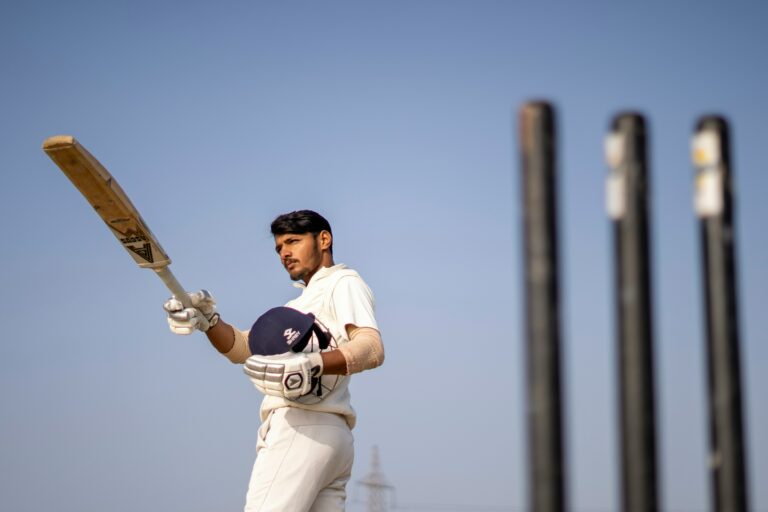Exploring the Role of Sports Nutrition in Injury Prevention in Cricket Coaching
11xplay online id, diamondexch9 login, sky exchange registration:Exploring the Role of Sports Nutrition in Injury Prevention in Cricket Coaching
Are you a cricket coach looking to help your players perform at their best while also reducing the risk of injuries? If so, you may want to consider the important role that sports nutrition plays in injury prevention. By providing your players with the right nutrients before, during, and after training and matches, you can help them stay healthy and injury-free throughout the season.
In this article, we will explore the impact of sports nutrition on injury prevention in cricket coaching. We will discuss the key nutrients that can help reduce the risk of injuries, as well as provide practical tips on how to incorporate them into your coaching program. So, let’s dive in and discover how sports nutrition can make a difference in the performance and well-being of your cricket players.
The Importance of Nutrition in Injury Prevention
Nutrition plays a crucial role in the overall health and performance of athletes, and cricket players are no exception. Proper nutrition not only fuels the body for physical activity but also helps build and repair muscles, bones, and other tissues that are constantly under stress during training and matches. Inadequate nutrition can lead to fatigue, poor recovery, and an increased risk of injuries, which can hamper an athlete’s performance and long-term development.
In cricket coaching, where players are required to run, jump, throw, and bat for extended periods of time, the demands on the body are high. Therefore, it is essential to provide players with the right balance of nutrients to support their physical and mental well-being. By focusing on sports-specific nutrition guidelines, coaches can help their players perform at their best while also reducing the risk of injuries.
Key Nutrients for Injury Prevention
When it comes to injury prevention in cricket coaching, there are several key nutrients that play a critical role in supporting the body’s ability to recover and repair itself. These nutrients include:
1. Protein: Protein is essential for muscle repair and growth, making it a crucial nutrient for cricket players who are constantly exerting themselves on the field. Including sources of lean protein such as chicken, fish, beans, and lentils in players’ diets can help support their muscle recovery and reduce the risk of injuries.
2. Carbohydrates: Carbohydrates are the body’s primary source of energy, especially during high-intensity activities like cricket. Including complex carbohydrates such as whole grains, fruits, and vegetables in players’ meals and snacks can help fuel their performance and prevent fatigue and injuries.
3. Hydration: Staying properly hydrated is essential for maintaining optimal performance and preventing injuries in cricket coaching. Encouraging players to drink water before, during, and after training and matches can help prevent dehydration and muscle cramps.
4. Vitamins and minerals: Vitamins and minerals play a crucial role in supporting various bodily functions, including muscle repair, bone health, and immune function. Ensuring that players consume a balanced diet rich in fruits, vegetables, and whole grains can help them meet their micronutrient needs and reduce the risk of injuries.
Practical Tips for Cricket Coaches
As a cricket coach, there are several practical tips you can follow to incorporate sports nutrition into your coaching program and help prevent injuries among your players:
1. Educate your players: Take the time to educate your players about the importance of nutrition in injury prevention and provide them with guidance on how to fuel their bodies for optimal performance. Encourage them to make healthy food choices both on and off the field.
2. Plan meals and snacks: Work with a sports nutritionist to develop meal and snack plans that meet the specific energy and nutrient needs of your players. Consider providing nutritious snacks such as protein bars, fruits, and nuts during training sessions and matches to keep players fueled and hydrated.
3. Monitor hydration: Keep a close eye on your players’ hydration status during training and matches and encourage them to drink water regularly. Consider providing access to sports drinks with electrolytes to help players stay hydrated and maintain their performance.
4. Emphasize recovery: Help your players understand the importance of rest and recovery in injury prevention. Encourage them to prioritize sleep, stretching, and foam rolling to help reduce muscle soreness and improve their overall well-being.
5. Lead by example: As a coach, you are a role model for your players. Lead by example by following a balanced diet, staying hydrated, and prioritizing recovery in your own routine. This will not only inspire your players but also reinforce the importance of sports nutrition in injury prevention.
Frequently Asked Questions (FAQs)
Q: Can sports nutrition really help prevent injuries in cricket coaching?
A: Yes, sports nutrition plays a crucial role in injury prevention by providing the body with the nutrients it needs to recover and repair itself after physical activity.
Q: How can I encourage my players to eat well and stay hydrated?
A: Educate your players about the importance of nutrition and hydration in performance and provide them with practical tips and guidance on making healthy food choices.
Q: What are some key nutrients that can help reduce the risk of injuries in cricket coaching?
A: Protein, carbohydrates, hydration, and vitamins and minerals are all important nutrients for supporting muscle recovery, energy production, and overall well-being in cricket players.
Q: How often should I monitor my players’ hydration status during training and matches?
A: It is recommended to monitor your players’ hydration status regularly, especially during hot and humid conditions, to prevent dehydration and reduce the risk of injuries.
In conclusion, sports nutrition plays a vital role in injury prevention in cricket coaching. By providing your players with the right balance of nutrients, you can help them perform at their best while also reducing the risk of injuries. By educating your players, planning meals and snacks, monitoring hydration, emphasizing recovery, and leading by example, you can create a supportive environment that promotes optimal performance and well-being among your cricket team. So, start incorporating sports nutrition into your coaching program today and help your players reach their full potential on the field.






